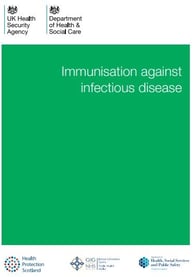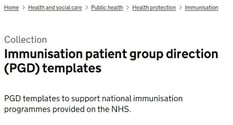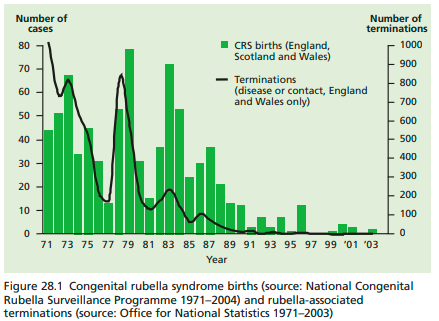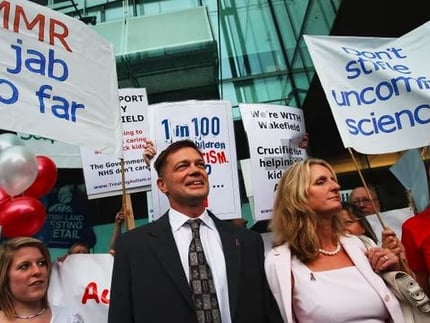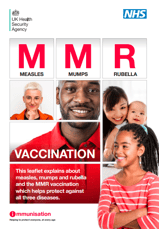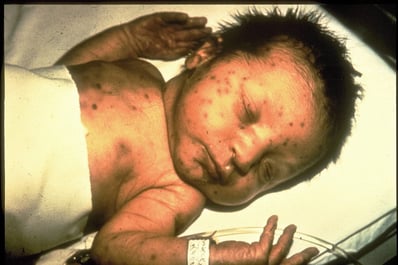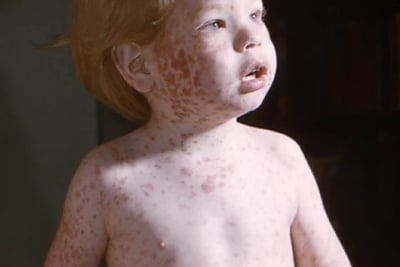Other useful links and further reading:
20th Jan 2025: Updates to the document MMR (measles, mumps, rubella) vaccine: advice for pregnant women
Vaccine uptake guidance and the latest coverage data
Laboratory confirmed cases of measles, rubella and mumps in England: April to June 2023
Sept 2024: Study shows gradual waning of MMR vaccine effectiveness over time. The waning is small, but may have significance, especially in under-vaccinated populations.
Recent Updates & News
30th April: A BIG update came along today - the 'changes to the routine childhood schedule letter'. Big read with lots of changes to absorb. I won't repeat it all here but do have a good read.... some of this relates to MMR scheduling on the childhood prog. (see UKHSA webinar link on news page in June and consider registering for more info). Expect Green Book updates, PGD changes and perhaps a small amount of chaos while we adapt to the changes. Keep calm and keep the kettle on....
The Green Book chapter was last updated in 2013!
So, like with Mumps, let's have a quick recap on the history of Rubella vaccination with the help of the Green book.
Rubella immunisation was introduced in the UK in 1970 for pre-pubertal girls and non-immune women of childbearing age to prevent rubella infection in pregnancy. Rather than interrupting the circulation of rubella, the aim of this strategy was to directly protect women of childbearing age by increasing the proportion with antibody to rubella; this increased from 85 to 90% before 1970 to 97 to 98% by 1987.
Surveillance for congenital rubella was established in 1971 to monitor the impact of the vaccination programme. During the period 1971–75 there were an average of 48 CRS births and 742 terminations annually in the UK.
Universal immunisation against rubella, using the measles, mumps and rubella (MMR) vaccine, was introduced in October 1988. The aim of this policy was to interrupt circulation of rubella among young children, thereby protecting susceptible adult women from exposure. At the same time, rubella was made a notifiable disease. A considerable decline in rubella in young children followed the introduction of MMR, with a concomitant fall in rubella infections in pregnant women – from 167 in 1987 to one in 2003.
THEN SUCCESS!! In 2015 the WHO announced that the UK had eliminated rubella. There are now very few cases of rubella each year in the UK - not enough for the disease to circulate widely in the population. Rubella vaccination in the UK has prevented roughly around 1.4 million cases of rubella, 1,300 cases of CRS-related birth defects, and averted 25,000 terminations. YAY!!!
28th Feb 2025: From GP contract 25/26 (varicella info included for context):
MMR programme schedule change and catch-up effective from 1st Jan 2026: Children turning 18 months on or after 01 January 2026 will receive their 2nd MMR dose at their new 18-month appointment. Children aged 18 months to 2 years 6 months on 01 January 2026 will be invited to a brought forward appointment for their 2nd MMR dose between 01 January 2026 and 31 October 2026. Children aged 2 years and 7 months to 3 years 4 months on 01 January 2026 will receive their 2nd MMR dose at their existing scheduled 3 years 4 months appointment before 31 October 2026.
Varicella introduction and catch-up (subject to final policy decision) effective from 1st Jan 2026: Children turning 12 months on or after 01 January 2026 will receive two doses of MMRV (at 12 and 18 months). Children turning 18 months on or after 01 January 2026 will receive one dose of MMRV (to complete their two-dose MMR schedule). Children aged 18 months to 3 years 4 months on 01 January 2026 will receive one dose of MMRV instead of their 2nd MMR dose. Of this cohort: those aged 18 months to 2 years 6 months will be invited to a brought forward appointment for their 2nd MMR dose (as MMRV) between 1 January 2026 and 31 October 2026. Those aged 2 years 7 months to 3 years 4 months on 1 January 2026 will receive their 2nd MMR dose (as MMRV) at their existing scheduled 3 years 4 months appointment before 31 October 2026. Children aged 3 years 4 months to less than 6 years will be invited for a universal single catch-up dose of MMRV. Appointments to be scheduled from 1 January 2026 and completed by 31 March 2027. Children aged 6 years to less than 11 years will be invited to receive a single dose of MMRV if they have no history of chicken pox. Appointments to be scheduled from 1 January 2026 and completed by 31 March 2027. From 1 April 2027, an opportunistic or on request offer will remain for varicella (as a single dose of MMRV) to all children aged 3 years 4 months to less than 11 years before 1 January 2026 who have no history of chicken pox.
MMR Vaccine & Autism claims:
Some findings from the literature
Here are some simple reassuring study findings taken from the Green Book if this becomes a topic of discussion in a consultation:
No increased risk of autism in children vaccinated with MMR compared with unvaccinated children (Farrington et al., 2001; Madsen and Vestergaard, 2004)
No clustering of the onset of symptoms of autism in the period following MMR vaccination (Taylor et al., 1999; De Wilde et al., 2001; Makela et al., 2002)
The increase in the reported incidence of autism preceded the use of MMR in the UK (Taylor et al., 1999)
The incidence of autism continued to rise after 1993, despite the withdrawal of MMR in Japan (Honda et al., 2005)
There is no correlation between the rate of autism and MMR vaccine coverage in either the UK or the USA (Kaye et al., 2001; Dales et al., 2001)
No difference between the proportion of children developing autism after MMR who have a regressive form compared with those who develop autism without vaccination (Fombonne, 2001; Taylor et al., 2002; Gillberg and Heijbel, 1998)
No difference between the proportion of children developing autism after MMR who have associated bowel symptoms compared with those who develop autism without vaccination (Fombonne, 1998; Fombonne, 2001; Taylor et al., 2002)
No vaccine virus can be detected in children with autism using the most sensitive methods available (Afzal et al., 2006).
The fake MMR claims that struck fear into generations of parents: Metro article
Have a google of Andrew Wakefield. This discredited doctor is one of the reasons we still see a lot of anxiety around MMR vaccines
This leaflet explains the measles mumps rubella (MMR) vaccine for all ages.
Bits and bobs to casually drop into conversation
Did you know....
According to the Green Book:
Maternal rubella infection in pregnancy may result in fetal loss or in congenital rubella syndrome (CRS). CRS presents with one or more of the following:
cataracts and other eye defects
deafness
cardiac abnormalities
microcephaly
retardation of intra-uterine growth
inflammatory lesions of brain, liver, lungs and bone marrow.
Infection in the first eight to ten weeks of pregnancy results in damage in up to 90% of surviving infants; multiple defects are common. The risk of damage declines to about 10 to 20% with infection occurring between 11 and 16 weeks gestation. Fetal damage is rare with infection after 16 weeks of pregnancy, with only deafness being reported following infections up to 20 weeks of pregnancy. Some infected infants may appear fine at birth but perceptive deafness may be detected later.
Before the introduction of rubella immunisation, rubella occurred commonly in children, and more than 80% of adults had evidence of previous rubella infection
Above: Baby with Congenital Rubella Syndrome. Below: Characteristic macropapular rash indicative of Rubella.
Images courtesy of the CDC and found on the hyperlink on the pictures - visit that link to see more images of Rubella - if you dare!

